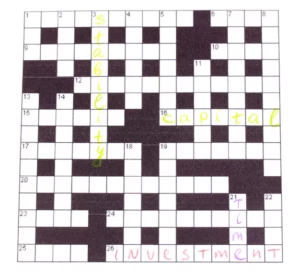Some singers perform. Others bare their souls. Fiona Apple and Tracy Chapman belong to the latter—a rare constellation of artists whose voices are not merely instruments, but living diaries. They don’t just sing words; they wrap them in ache, courage, and truth.
Who is Fiona Apple?
Early Life and Musical Awakening
Fiona Apple grew up in a world of contrasts—classical piano lessons echoing alongside raw teenage emotions. By 17, she had already begun carving her path, her songs steeped in confessions that felt both intimate and theatrical.
Her Breakthrough and Vocal Identity
Her debut Tidal was more than an album—it was an open wound. Her voice? A trembling candle in the wind one moment, a wildfire the next. She taught us that imperfection wasn’t just acceptable—it was art.
Who is Tracy Chapman?
Humble Beginnings and First Chords
Tracy’s voice began in quiet corners—small coffeehouses, worn-out guitars, and a heart brimming with stories.
The Quiet Revolution of Her Voice
When Fast Car hit the airwaves, it wasn’t just a song—it was a quiet storm. Her voice carried the weight of lives untold, a gentle yet unshakable force.
The Vocal DNA of Fiona Apple
Tonal Warmth and Raw Vulnerability
Her voice is warm honey poured over jagged glass—comforting yet capable of cutting straight to the core.
Dynamics — Whispers and Roars
Few can shift from a tender hum to a guttural belt like Fiona. It’s not just about volume—it’s about intent, like she’s handing you her heart, then slamming the door when it gets too real.
Lyric Delivery Like Confessions in the Dark
When Fiona sings, you feel like you’ve stumbled into a private conversation she’s having with herself.
The Vocal DNA of Tracy Chapman
Earthy Resonance and Soulful Gravity
Tracy’s voice feels like the ground after rain—solid, nurturing, and deeply familiar.
Controlled Power with Emotional Restraint
She doesn’t need to shout to be heard. Her control is surgical; her quietness often hits harder than a scream.
Storytelling Through Every Breath
Every inhale, every pause, feels deliberate—another sentence in the story she’s telling.
Technical Comparisons
Vocal Range and Registers
Fiona often plays in the alto range, with smoky lows and dramatic mid-tones. Tracy, while also an alto, leans toward a grounded resonance that rarely climbs unnecessarily.
Timbre and Tonal Texture
Fiona’s timbre is erratic and textured—like an old vinyl record. Tracy’s is smooth gravel—steady, grounding, and unshakable.
Breathing and Phrasing Style
Fiona breathes like she’s gasping for truth. Tracy breathes like she’s carrying truth carefully to its destination.
Emotional Impact — Where They Touch the Listener
Vulnerability as a Superpower
Both wield vulnerability like armor—turning their deepest truths into the listener’s mirror.
Songs That Break and Heal You
From Fiona’s I Know to Tracy’s The Promise, their songs feel like sitting in silence with someone who just… gets it.
Influence and Legacy
Fiona’s Experimental Bravery
She’s unafraid to make the uncomfortable beautiful—layering discord with poetry.
Tracy’s Timeless Sincerity
Her voice is a protest and a prayer, living outside trends and eras.
When Their Worlds Collide — Imagining a Collaboration
Hypothetical Blend of Textures
Imagine Fiona’s restless phrasing interlaced with Tracy’s steady grounding—a sonic seesaw between chaos and calm.
Potential Lyrical Landscapes
They’d sing of cities at midnight, of love too fragile to name, of revolutions whispered in alleys.
Why These Voices Matter Today
Authenticity in an Age of Polish
In a world tuned to perfection, their flaws are the gold seams in the pottery.
The Return of Soulful Truth
They remind us that music isn’t about notes—it’s about need.
Conclusion — Two Lanterns in the Dark
Fiona Apple and Tracy Chapman aren’t just musicians—they’re keepers of emotional weather. Each song is a lantern, swinging in the wind, guiding us through the fog of our own lives.
FAQs
Q1: Are Fiona Apple and Tracy Chapman musically similar?
A1: They share emotional honesty, but their vocal textures and approaches differ.
Q2: Has Fiona Apple ever covered a Tracy Chapman song?
A2: Not publicly in an official release, though she has cited similar influences.
Q3: Which albums best showcase Fiona Apple’s vocals?
A3: Tidal, When the Pawn…, and Fetch the Bolt Cutters.
Q4: What makes Tracy Chapman’s voice unique?
A4: Its earthy resonance, control, and unshakable emotional clarity.
Q5: Could they collaborate successfully?
A5: Absolutely—contrasting textures could create a haunting, unforgettable soundscape.








